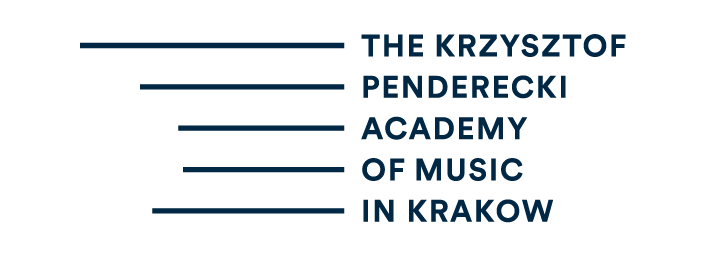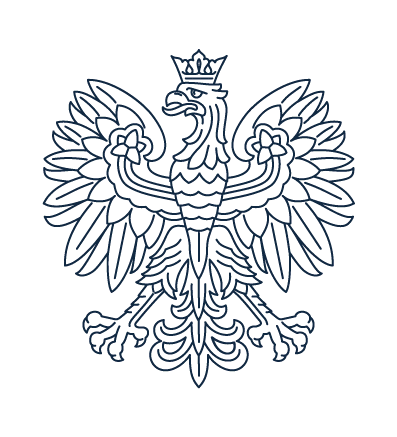Department of Percussion and Contemporary Music
Department of Contemporary Music Interpretation was formed in 1990 by Professor Adam Kaczyński. At that time, it was the first Department at all music academies in Poland that focused on the performance of contemporary music. Since its inception, it has been supported artistically and in other aspects by Poland’s first professional ensemble performing contemporary and avant-garde music – Ensemble MW2. The ensemble has participated in over 80 festivals in Europe, Asia and South Korea. It has presented the first performances of musical works by major contemporary composers from all over the world, and performed compositions by Polish artists, such as B. Schäffer, K. Moszumańska-Nazar, E. Bogusławski, A. Walaciński, K. Meyer, H. M. Górecki, M. Stachowski, K. Knittel and many composers of the younger generation.
The teaching programme of the Department’s staff includes a course on contemporary music performance practice for students of the Instrumental Faculty. The contemporary music curriculum in the form of practical classes covers all major trends in the 20th and 21st century music, solo works, chamber music, as well as larger instrumental and vocal ensembles with a conductor. Contemporary musical notation, including graphic notation, new sound explorations, preparation of instruments, ideas on the borderline between music, instrumental theatre and happening are only some of the elements of contemporary performance workshop that is part of the classes.
At the end of both semesters, all students attending the Department’s classes have to take public examinations in the form of concerts.
The Department’s activities have given rise to the artistic careers of many acclaimed ensembles. They include Kroke, Motion Trio, Ara Ensemble and Krakow Percussion Duet.
In addition to the teaching process, the Department carries out wide-ranging concert and academic activities relating to the music composition techniques and the performance of contemporary and percussion music. In the years 1993-2002, “Write & Play” international music festivals were held, devoted to the contemporary music of various countries, such as Denmark, Italy, the Netherlands, Switzerland, the USA and many others. The teaching and research efforts have also resulted in CD recordings for a major label promoting contemporary music, Vienna Modern Masters. The records include compositions by D. Cope, T. Bräm, R. Haubenstock-Ramati, B. Lorentzen and A. Kaczyński.
Since Professor Jan Pilch took over as head, the Department has also participated in the organisation of the International Percussion Festival “Sources and Inspirations” and has been the initiator of cyclical projects, such as “Jazz at the Academy”, Composition and Performance Workshops, master classes and seminars conducted by foreign lecturers (USA, Germany, Indonesia, UK, Italy, Spain). A project entitled “Musical Coexistence” – an international scientific session combined with workshops and concerts which took place in February 2010 – met with great interest from the listeners and participants, as well as with favourable reviews and opinions of the music community.
Between 2012 and 2014, the Department led an international project called ASTAPER in collaboration with the music academies of Valencia, Freiburg and Padua as well as the Higher School of Theatre and the Academy of Physical Education. The subject of the project was: The fundamentals of anthropomotorics and stage presence techniques in percussion performance. More than 10 concerts were given in the course of ASTAPER, and the entire project was documented in a publication containing the lectures as well as DVD recordings of concerts and workshops.
In the long history of the Department, lectures and master classes have been given, among others, by:
- Bertel Krarup (Rector of the Det Fynske Musikkonservatorium in Odense, Denmark) – Contemporary music at the Odense Conservatoire
- Per Erland Rassmussen (Vice-Rector of the Det Fynske Musikkonservatorium in Odense, Denmark) – Contemporary music from Carl Nielsen to the present day
- Ada Gentile and Vittorio Fellegara (Italy) – Musical notation as a form of communication between the composer and the performer
- Martin Joste (France) – Musical notation as a form of communication between the composer and the performer.
- Krzysztof Knittel (Warsaw) – Musical notation as a form of communication between the composer and the performer
- Daniel Weissberg (Basel, Switzerland) – Composer’s own technique
- Barbara Jazwinsky (Tulane University, USA) – Composer’s own technique
- Carl Bergstrom-Nielsen (Humlebaek, Denmark) – Intuitive Music
- Yuko Kawai (Japan) – Contemporary Japanese music
- Adam Kaczyński (Academy of Music, Kraków) – Shape for 2 pianos
- Krzysztof Olczak (Academy of Music, Gdańsk) – Problems of new accordion techniques in the light of contemporary composition techniques
- Sigfried Mauser (Salzburg, Austria) – A lecture delivered during the Symposium dedicated to Alexander Zemlinsky
- Paul Sacher (Basel, Switzerland) – A lecture delivered at the ceremony of the conferring of the Degree of Doctor Honoris Causa
- Krystyna Moszumańska-Nazar (Academy of Music, Kraków) – Musical notation as a form of communication between the composer and the performer
- Piotr Grella-Możejko (Edmonton, Canada) – Between the European rock and the American hard place
- Carl Humphries (London, United Kingdom) – Philosophical problems in modern music
- Dinu Ghezzo (New York University, USA) – New realities of the composer’s profession in the early 20th century
- David Eddleman (Rockaway, USA) – Kolot min HaShoah
- Marek Stachowski (Academy of Music, Kraków) – Audition for flute, cello and piano
- Chang – Min Park (Seoul, Korea) – String Quartet II
- Adam Walaciński (Academy of Music, Kraków) – Moment musicaux avec postulude en homage
- Amsterdam Mallet Colective (the Netherlands)






